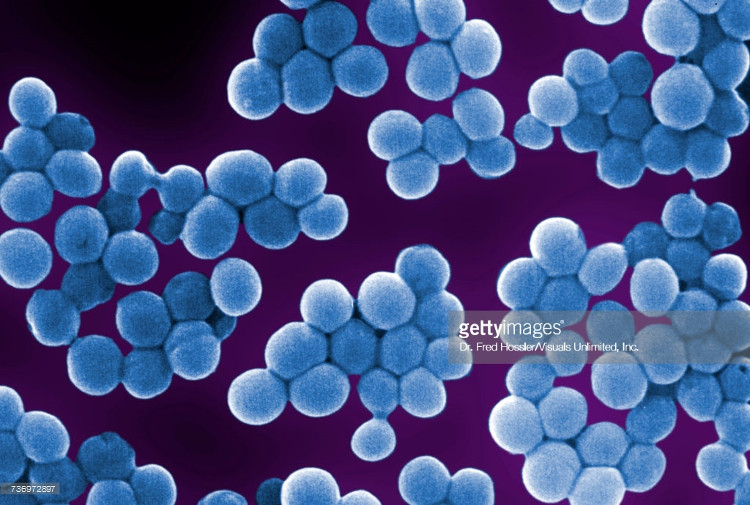Detecting bacteria that live on the skin can prevent cancer
Staphylococcus epidermidis bacteria often live on parasites on human skin, can prevent the development of some forms of cancer. That is the latest study published on February 28 in the American Journal of Science Advances.

Staphylococcus epidermidis bacteria.
According to US scientists, this is the only strain of bacteria that produces a chemical called 6-HAP that can kill some types without affecting normal cells.
Scientists tested mice and found that mice without this strain had many malignant cancerous tumors on their skin after being exposed to ultraviolet (UV) rays, while those that did not have ultraviolet (UV) exposure. The mice with aerial bacteria have these tumors.
6-HAP is a molecule that can inhibit the synthesis of DNA molecules and the growth of cancer cells, said lead researcher Richard Gallo, a professor of dermatology at the University of California, 6-HAP. Therefore, it is possible to prevent the development of UV-induced skin cancer tumors.
Rats injected with 6-HAP every 2 days for more than 2 weeks showed no symptoms showing their normal cells were damaged and when they were transplanted melanocytes, the size of the block Cancer tumors have decreased by more than half compared to mice not given the above chemicals.
- Detecting some skin bacteria against ulcers
- This color granule can prevent skin cancer
- Cheap food reduces the risk of skin cancer by 17%
- Snacks cost only a few thousand but can prevent lung cancer up to 19%
- Enteric bacteria can affect the body's response to cancer treatments
- Detecting skin cancer with the latest predictive technology
- Cure skin cancer with arthritis medication
- The relevance of oral bacteria and cancers
- Many types of bacteria are found on the skin
- Use sunscreen when your baby can prevent cancer later
- Add a simple measure to prevent stomach cancer
- Your skin can be attacked by bacteria in just 10 minutes of swimming in the sea
 Green tea cleans teeth better than mouthwash?
Green tea cleans teeth better than mouthwash? Death kiss: This is why you should not let anyone kiss your baby's lips
Death kiss: This is why you should not let anyone kiss your baby's lips What is salmonellosis?
What is salmonellosis? Caution should be exercised when using aloe vera through eating and drinking
Caution should be exercised when using aloe vera through eating and drinking